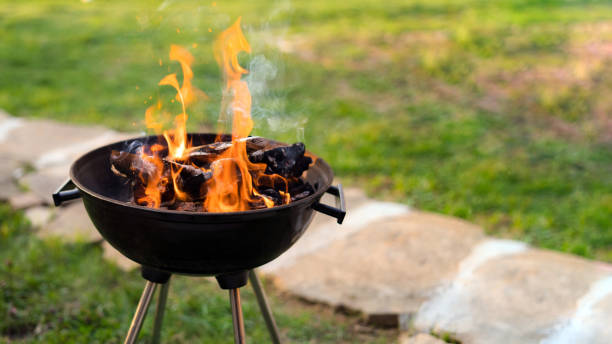As the days get longer and warmer, we’re all eager to get outside and enjoy the summer months. Here are some tips and advice to ensure your summer is fire-safe!
When using a barbecue:
- Make sure your barbecue is on a stable base and well away from buildings, sheds, fences, trees, shrubs, or garden waste
- Never use petrol or paraffin to start or revive your barbecue; use only recognised lighters or starter fuels on cold coals
- Don’t leave a barbecue unattended. Keep children, pets and garden games away from the cooking area
- Keep a bucket of water, sand, or a garden hose nearby for emergencies
- Never use a barbecue indoors – this includes in a tent or caravan. There is a risk of fatal carbon monoxide poisoning
- Empty ashes onto bare garden soil, not into dustbins or wheelie bins. If they’re hot, they can melt the plastic and cause a fire
- Enjoy yourself, but don’t drink too much alcohol if you are in charge of the barbecue
When using gas barbecues and stoves:
- Store gas cylinders outside, away from direct sunlight and frost
- Never store gas cylinders under the stairs – if there is a fire they might explode and block your escape route
- Take care when turning bottled gas barbecues on and off
- Make sure all joints are tightened, safe and secure
- After cooking, turn the gas supply off first and then the barbecue/stove control. This will stop any gas from leaking
- Only change when the cylinder is completely empty
- Make sure the tap is turned off before changing the gas cylinder outdoors or in a well-ventilated area. If you suspect a leak, switch off and do not use
Bonfires
- Garden Bonfires are not permitted
Keeping your home safe in the summer and year-round:
- Test your smoke and carbon monoxide detectors regularly and replace the batteries if needed
- Extinguish cigarettes and other smoking materials properly and avoid dropping them on the floor
- Check your fire extinguishers to ensure they are in good working condition
- Make sure everyone in your home is familiar with your building’s or your family’s fire escape plan
- Check that all windows and doors used in case of evacuation remain unobstructed and open easily

